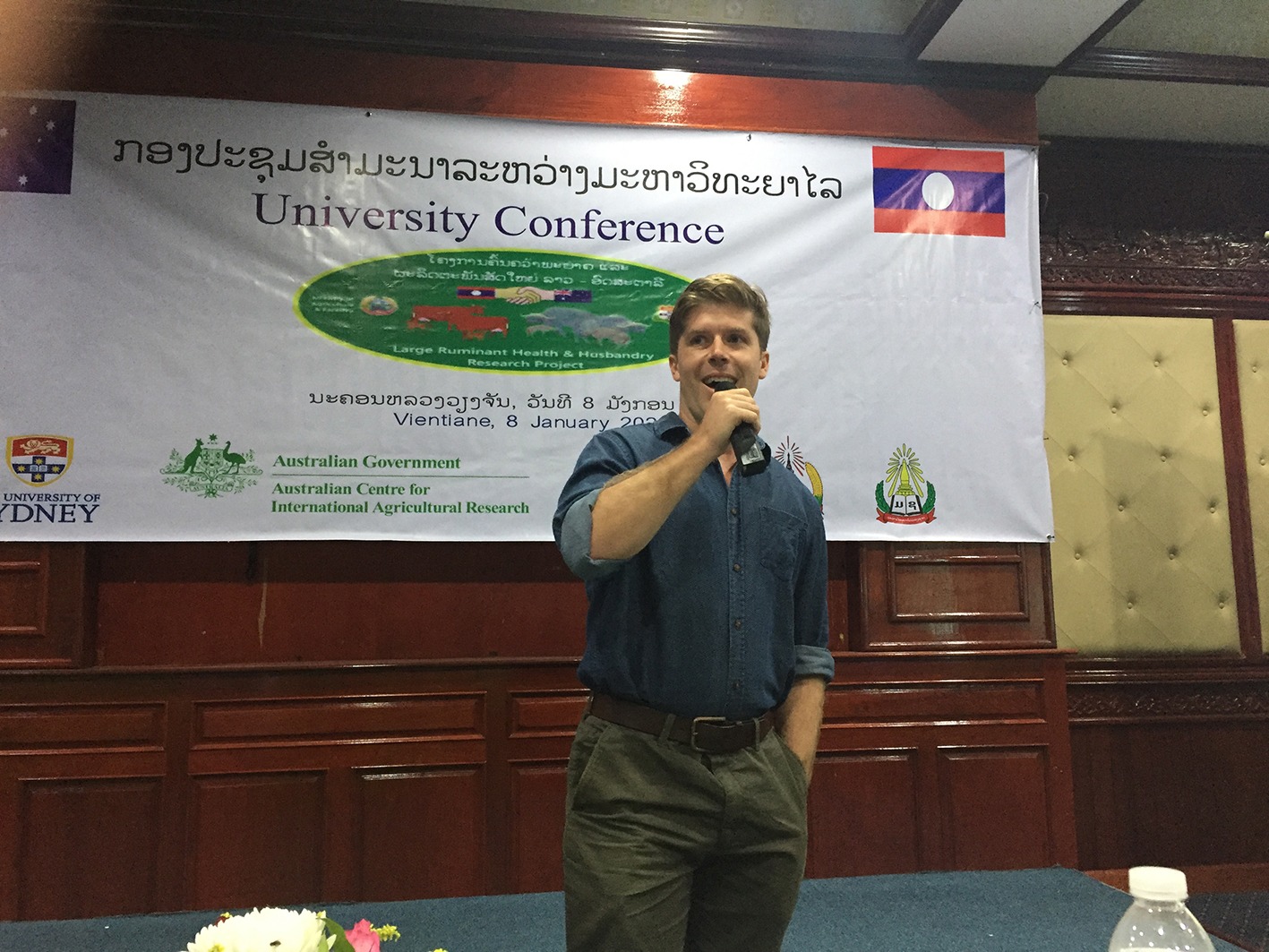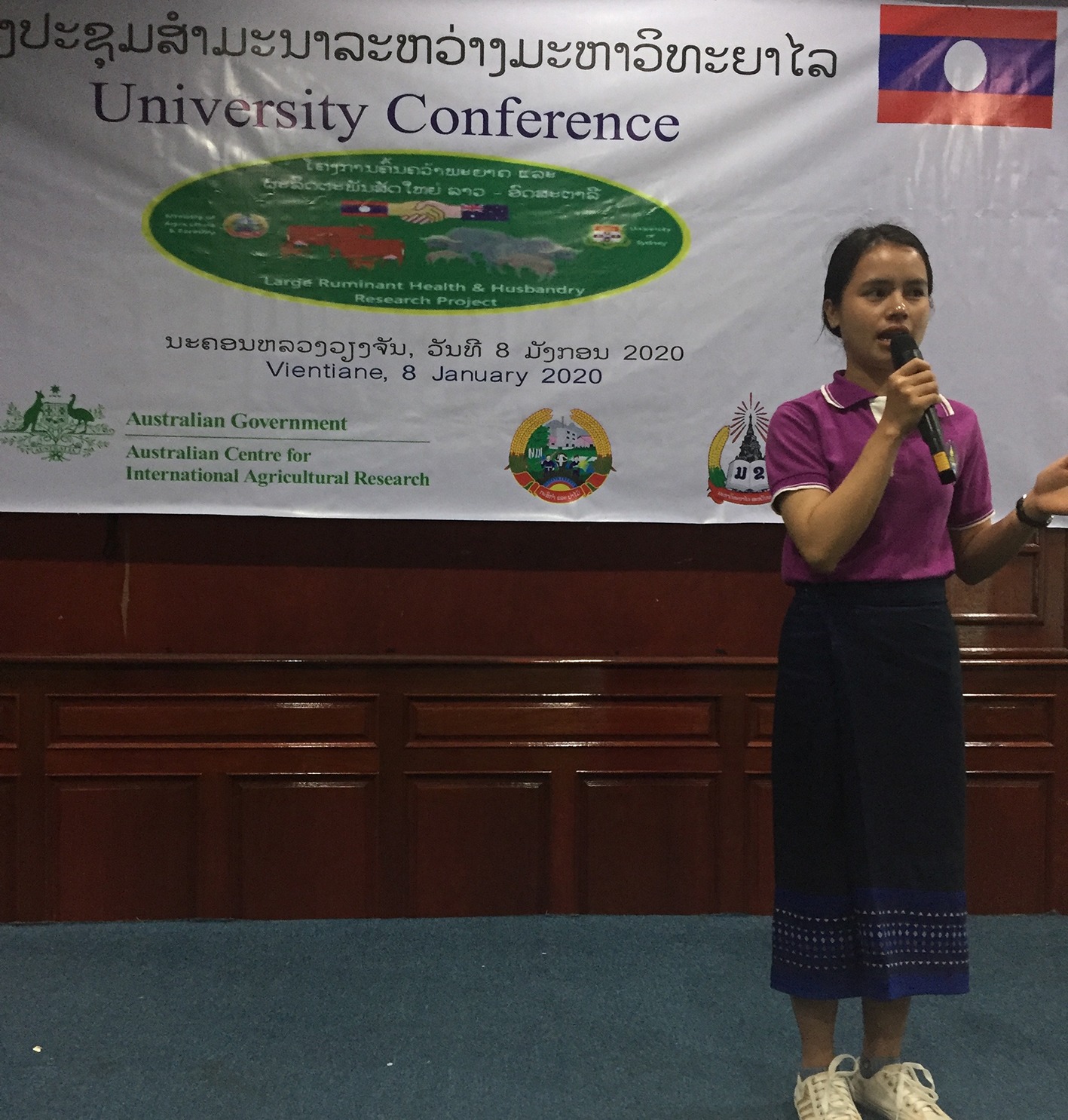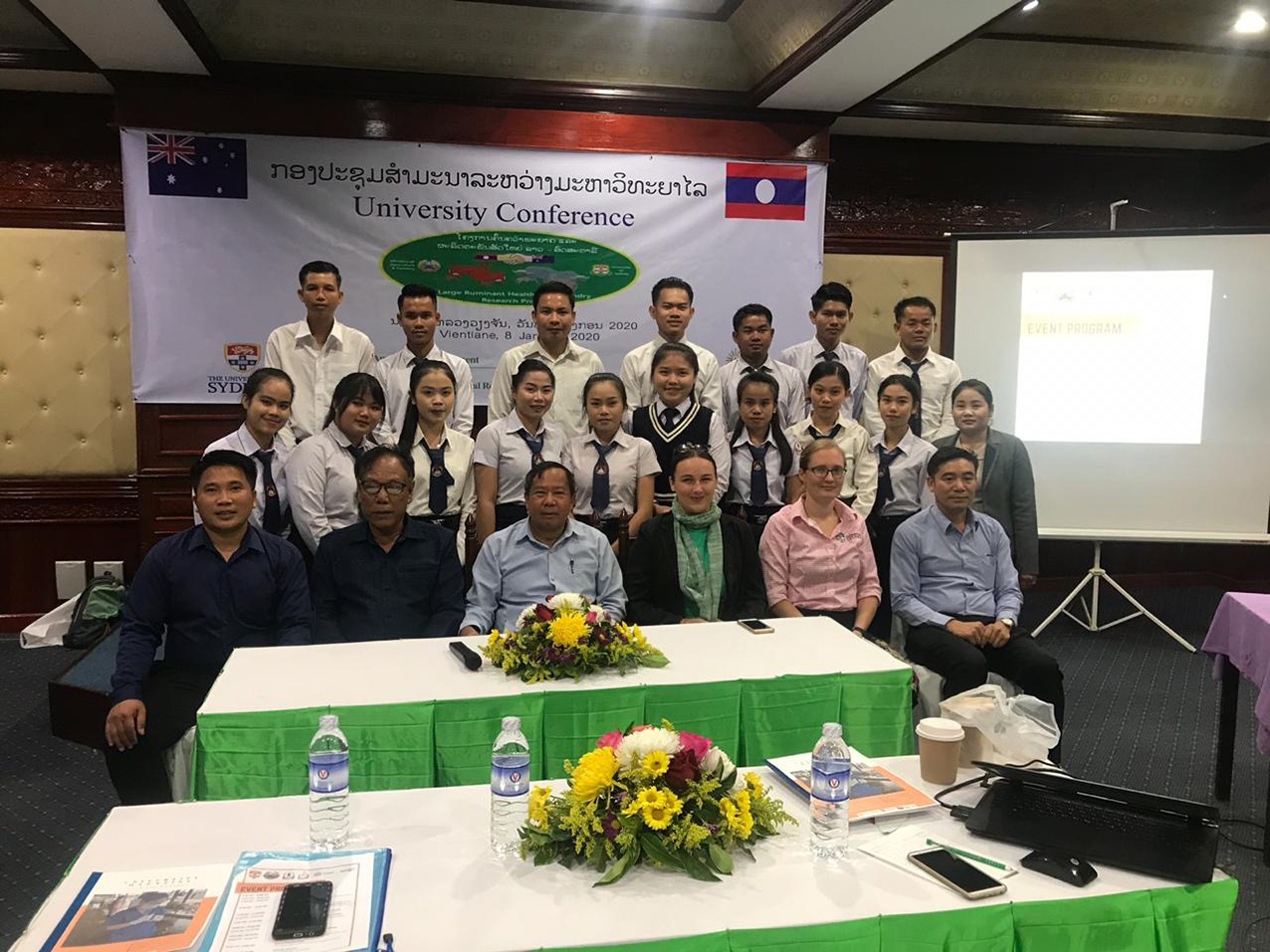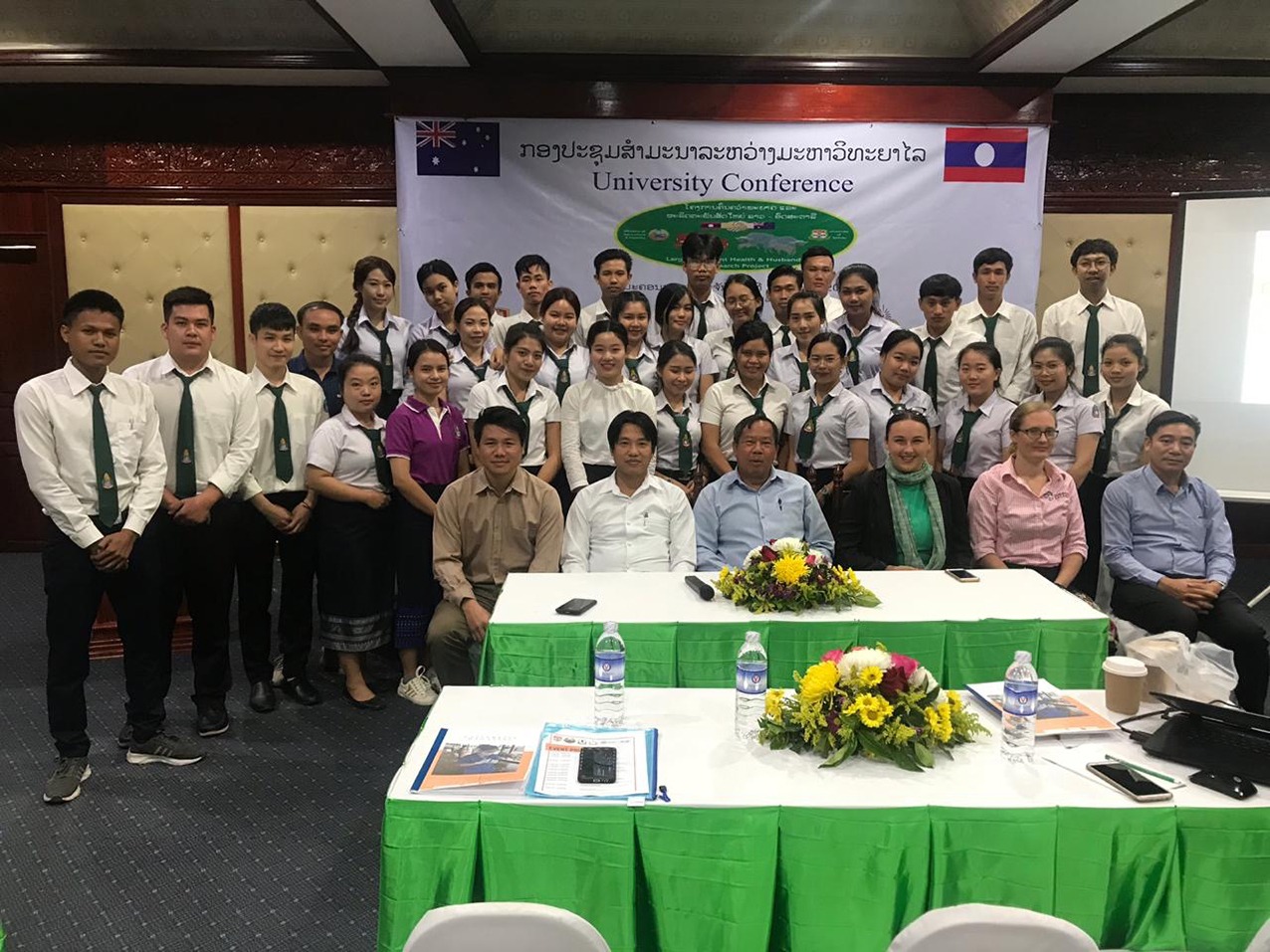

Thought for food: How university training in Laos can result in long-term change to agricultural capacity and food security
February 3, 2020
We are always pleased to learn what our former scholars and awardees are up to. So we are happy to provide this report by one of our former conference scholars, Francesca Earp, who is now an in-country implementation officer for two ACIAR funded projects conducted by The University of Sydney and Department of Livestock and Fisheries in Laos. The projects focus on livestock disease control and market access to improve food security and smallholder farmer livelihoods.
Franny is reporting on a student conference in Vientiane with students from Savannakhet University and the National University of Laos in which our two current volunteers in Laos, Matt Champness and Stephen Lang, were involved. The student conference followed a three-part workshop series held at both universities as part of the University of Sydney and Department of Livestock and fisheries projects funded by ACIAR.
Are you interested in volunteering with our long-term project in Laos? More details here.

‘It’s okay to make mistakes as long as you learn from them’ was the final message given by Australian volunteer and keynote speaker Matt Champness at the ‘food for thought’ student conference held in Vientiane earlier this month. Matt spoke to a room full of eager university students and staff from both the National University of Laos (NUOL) and Savannakhet University (SVKU) telling them about his own experience of conducting research in Laos whilst teaching the age old message that any result in science is a good one, even if it was not what you were expecting. Matt spoke alongside Stephen Lang, another Australian volunteer, Mr. Phonethep from SVKU, Dr Vannaphone from NUOL and myself. Matt and Stephen are both in Laos for a year with the Australian Government’s Australian Volunteer Program, working with Laos partners, including the Lao Ministry of Agriculture and Forestry and the Provincial Agriculture and Forestry Office in Savannakhet, on the Crawford Fund’s 10+ year project to improve crop and soil health, biosecurity, food safety, weed control and, ultimately, food security. In addition, there were student presentations from Pavlina Chansy and Chansamone Itthaphone on behalf of NUOL and Chanphen Chindavong, Moukdasavan Xaymahathep, Anounee Mahasongkham, Somhak Sonlamany and Latsamee Phengsamone representing SVKU.
The conference was organised by The University of Sydney and The Department of Livestock and Fisheries to conclude a university involvement initiative as an integral component of two ACIAR funded projects in Laos. This compliments an established long history of university involvement with NUOL and SVKU during the course of these projects involving research activities and expanding to training workshops for staff and students and project scholarships to assist final year students to collect research for their thesis.

In August 2019 we began our new ‘writing workshop series’. This three-part series was held at both universities with sessions focused on; finding and referencing scientific information, writing a scientific manuscript and presenting scientific data. A university staff member and myself conducted each session to ensure that there was legacy of the program and the teaching style after its initial year. At NUOL the sessions were run in collaboration with Dr Malavan, a John Dillon Memorial Fellowship alumni and the coordinator of the universities masters program whilst at SVKU Mr. Phonethep, who is a lecturer assisted in the workshop. In addition to the workshop series there was close collaboration with the universities in other areas. At SVKU I assisted in teaching agricultural science and English classes. While at NUOL I attended the final year student presentations to offer additional feedback and support.
During our first workshop session the room would go quiet whenever a question was asked or a discussion point was raised. The university staff soon told me that it was rare for students to be engaged in these sort of discussions, and as such the session was a big change to the regular classroom culture. To observe the transformation from the silent classroom in our first workshop to the student conference where we had to cut question sessions short due to the multitude of questions and comments was an experience I won’t soon forget.

Working in country means it is often easy to lose sight of the important changes and capacity building that occurs each and everyday. With such ambitious goals to improve food security and smallholder farmer livelihoods it can be easy to overlook the importance of involvement opportunities such as this. Working with the universities in this way is so important because it is in the classroom that will we can help promote real and important change. The provision of extension recourses to smallholder farmers needs to be supported by deep-rooted changes to farming behaviour and understanding to ensure long-term adoption and positive agricultural transformation. The students that presented and attended the university conference are the future of agriculture in Laos, whether they go on to work as provincial and district officers, village veterinary workers, university lecturers or working on their family farm. They are the people that will make a real difference here in Laos so ensuring that we provide them with the opportunity to present data, hear from others and learn to engage in critical analysis is just as important as it is to provide seeds and vaccines to farmers.
I am grateful for the opportunity to collaborate with the staff and students at the universities and I am excited to see what the students will achieve next. Just as much as the conference provided ‘food for thought’ it is now hoped that it will promote ‘thought for food’ with students and staff utilising the skills and discussions from the conference to direct research and behaviour change in Laos.





 0
0